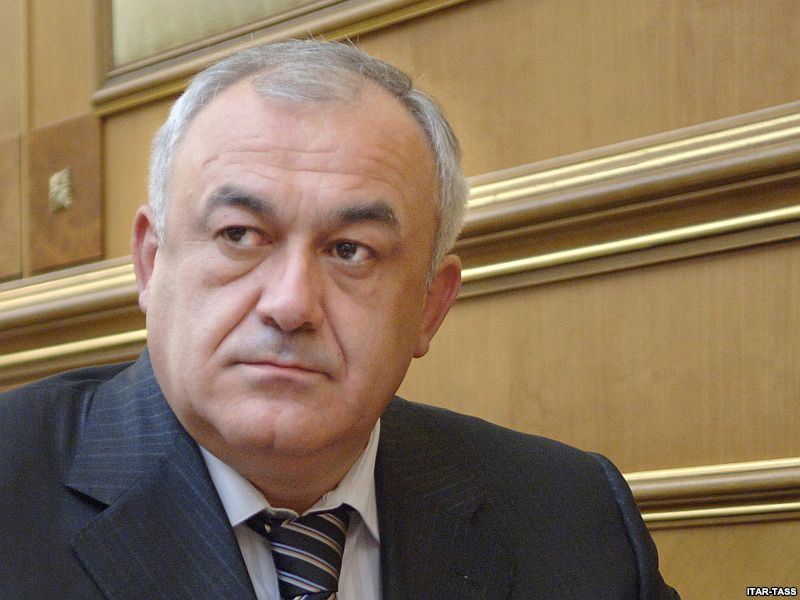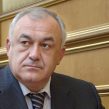
North Ossetian Interior Ministry Clashes with the Republican Government
Publication: Eurasia Daily Monitor Volume: 10 Issue: 131
By:

In an interview published on July 2, North Ossetia Interior Minister Artur Akhmetkhanov lashed out at the Muslim community of the republic for allowing radicalism to spread. Akhmetkhanov confirmed that four ethnic Ossetians had been killed fighting in Syria and that others were fighting on the side of the Syrian opposition. “People go for the hajj and they are recruited there,” he said. “Afterwards they return or do not return. We do not see them again. Their relatives either keep quiet or say that they went missing.” Akhmetkhanov accused North Ossetian mufti Khajimurat Gatsalov of unjustified attacks on the republican Interior Ministry and declared: “I am telling you, radical Islam has entered [North Ossetia].” To be sure, the minister also attacked other social groups, such as Jehovah’s Witnesses and Baptists, for their “subversive” activities, but he emphasized the Muslim theme (https://gztslovo.ru/news_full/stati/varyaga-zvali/).
North Ossetia has a predominantly non-Muslim population and has little involvement in the ongoing insurgency in the North Caucasus, so the news about Ossetians being killed in the Syrian civil war came as a shock to many. Now the question is whether North Ossetia will become part of the zone of instability in the North Caucasus. So far the republic has been practically excluded from the area of rebel activities. According to the insurgency’s leadership, North Ossetia is a part of its neighbor and rival, Ingushetia, and thus does not exist as a separate entity on the map of the Caucasus Emirate. The reluctance of North Ossetian Muslims to participate in the warfare is probably connected less to the efficient work of the security services than to nationalist contradictions between the Muslim Ossetians and the Ingush.
North Ossetian mufti Gatsalov responded to the attack by the interior minister with a lengthy article. “Why is a person who believes in God and adheres to the tenets of his religion a fanatic?” asked the mufti rhetorically. The religious leader accused the police of repression against innocent Muslims and attempts to eradicate Islam in North Ossetia (https://www.islamosetia.ru/index.php/home/1-latest-news/395-2013-07-09-16-09-33.html).
Meanwhile, relations between the North Ossetian republican government and the interior ministry of the republic have also become tense in recent weeks. In June 2013, the vice speaker of the North Ossetian parliament, Stanislav Kesaev scathingly criticized the interior ministry and General Artur Akhmetkhanov personally for being unprofessional. The police reacted in a predictable way by launching a probe into corruption allegations connected to Kesaev’s work in the North Ossetian State University. “I insist that the interior ministry of North Ossetia does not function according to the modern standards,” Kesaev said. “After the tragedy in Beslan [the 2004 hostage crisis at a school in the town of Beslan] they started to dispatch police heavyweights to us who feel as if the republic is their fiefdom. They do anything they please” (https://region15.ru/news/main/2013/06/27/20-07/).
After Kazbek Dzantiev, an ethnic Ossetian, resigned as North Ossetian interior minister in 2004, Moscow invariably appointed outsiders to the post of republican interior minister. The North Ossetian government, in turn, quietly sparred with the ministers dispatched by Moscow, but the brawls between the officials never became public. The latest criticism of the North Ossetian Ministry of the Interior came as four people were killed and several others were wounded in shootouts between criminal gangs in three interrelated incidents in the republic, including an attack on a funeral—something unheard of in relatively traditional North Ossetia, where customs carry substantial weight (https://www.regnum.ru/news/kavkaz/osetia/1671286.html; https://www.regnum.ru/news/kavkaz/osetia/1673102.html).
Republican governments in the North Caucasus rarely, if ever, make public their conflicts with their respective interior ministries. Part of the reason for this behavior is that the police can almost always retaliate by investigating the corrupt practices of republican officials. Stanislav Kesaev, who is a long-time academician with no obvious business interests or access to budget money, could afford to spearhead the attack on the interior ministry, but he was certainly supported by North Ossetian officials. Interior ministers are under control of Moscow, and republican governments have no formal way of interfering with the police. In reality, however, the vast majority of police personnel in the republics are locals, and republican governments also find ways to lobby Moscow for changes in the republican police leadership. Akhmetkhanov is allegedly about to step down from his position as North Ossetian interior minister (https://gztslovo.ru/news_full/stati/varyaga-zvali/).
The latest manifestation of the simmering conflict between the North Ossetian interior minister and the republic’s government is notable for its principled character, which elucidates the changing dynamic of relations between Moscow and regions. “Many people in the Russian Federation still cannot reject imperial thinking,” Kesaev said in his diatribe against the North Ossetian interior minister and the general hostility in Moscow against regional autonomy. “They reckon ‘once I was sent here, I am the boss, I am right and you are all under me.’ This is not going to happen” (https://www.gradus.pro/interview/stanislav-kesaev-ya-druzhu-s-tajmurazom-mamsurovy-m-no-mnogie-dejstviya-ego-komandy-mne-neponyatny.html).
So it appears that discontent with Moscow’s policies aimed at controlling every possible aspect of political life in the regions evokes protest among regional elites even in relatively quiet and conformist republics like North Ossetia. This was to be expected, as the Russian government’s growing control over the regions in the North Caucasus has yielded few practical benefits for the locals. Also, since the process of establishing greater control over the regions have been accompanied by the rise of Russian nationalism, the non-Russian regions of Russia were bound to react to the trend with the corresponding regional nationalisms.




